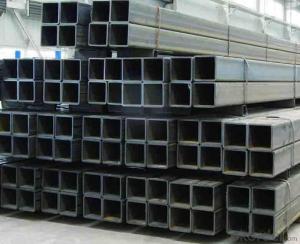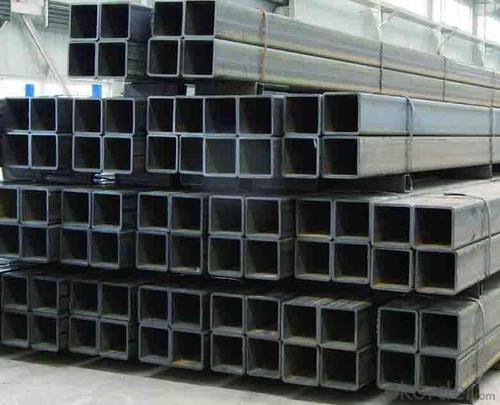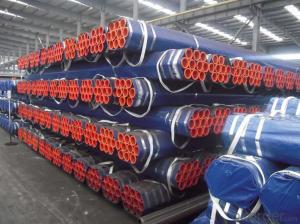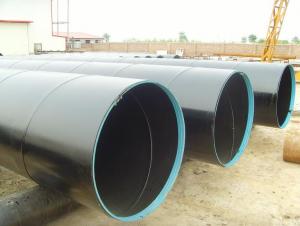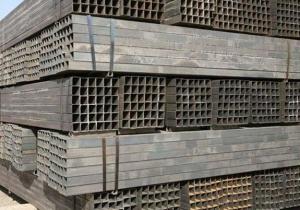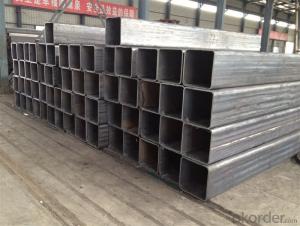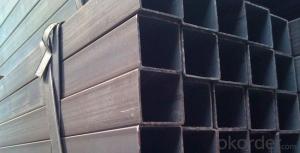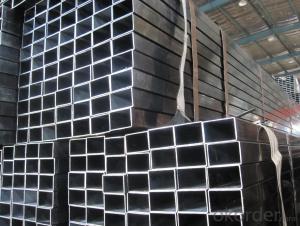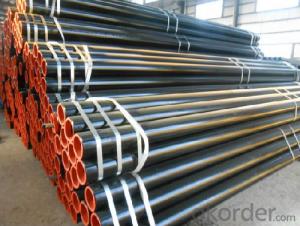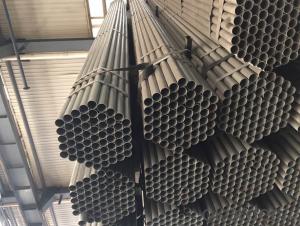ASTM A500/JIS/EN Rectangular hollow section/RHS
- Loading Port:
- Tianjin
- Payment Terms:
- TT OR LC
- Min Order Qty:
- 10 m.t.
- Supply Capability:
- 5000 m.t./month
OKorder Service Pledge
OKorder Financial Service
You Might Also Like
Product Name | rectangular hollow section/ RHS | |
Size | Size: | 10*10--500*500mm |
Thickness: | 0.45--16mm | |
Length: | 3-12m | |
Steel Grade | Q195,Q215,Q235,Q345,16Mn, 20# | |
Standard | ASTM A500,EN10219,GB/T6728,GB/T6725,JIS G3466 | |
Usage | 1. For Structure, Airport, Railway 2. Construction and so on. | |
Ends | Plain end or By Your Choice | |
Surface | Bared Or With Oiled Or Galvanized | |
Technique | ERW ,Hot Rolled and Cold Rolled | |
Section Shape | Rectangular | |
Inspection | With Hydraulic Testing, Eddy Current , Infrared Test | |
Package | Bags, Bundle, In Bulk, Containers | |
MOQ | 20 Metric Ton / Can Be Negotiated | |
Supply Ability | 15,000 Metric Ton/Month | |
Date of Delivery | 7 days(Qty within 1000 Metric Ton) or According To The Quantity | |
Port of Shipment | Tianjin, China | |
Payment | L/C T/T | |
- Q: Can steel pipes be used for oil drilling operations?
- Yes, steel pipes are commonly used for oil drilling operations due to their strength, durability, and ability to withstand high pressure and corrosive environments.
- Q: What is the shear strength of steel pipes?
- The shear strength of steel pipes can vary based on a variety of factors including the grade and thickness of the steel, as well as the manufacturing process and any additional treatments or coatings applied. Steel pipes generally possess a high shear strength due to the inherent strength of steel as a material. Determination of shear strength is typically achieved through testing and can range from 50,000 to 80,000 pounds per square inch (PSI) for common grades of steel pipes. However, it is important to acknowledge that the shear strength can be considerably higher for specialized or higher-grade steel pipes that are specifically designed for applications such as offshore drilling or high-pressure systems. Therefore, it is advisable to refer to the manufacturer's specifications or engineering standards for precise and specific shear strength values for a particular steel pipe.
- Q: How do you calculate the pipe friction loss for steel pipes?
- The pipe friction loss for steel pipes can be calculated using the Darcy-Weisbach equation, which takes into account the pipe diameter, length, roughness, flow rate, and fluid properties. This equation considers the pressure drop caused by friction as the fluid flows through the pipe. By solving this equation, the pipe friction loss can be determined.
- Q: What are the common standards for coating and lining of steel pipes?
- The common standards for coating and lining of steel pipes are outlined by various organizations and regulatory bodies to ensure the durability, corrosion resistance, and overall quality of the pipes. Some of the widely recognized and used standards include: 1. American Society for Testing and Materials (ASTM): ASTM has developed numerous standards for coating and lining of steel pipes, such as ASTM A775/A775M for epoxy-coated reinforcing steel, ASTM A1064/A1064M for metallic-coated steel wire, and ASTM A1057/A1057M for fusion-bonded epoxy-coated steel reinforcement. 2. American Water Works Association (AWWA): AWWA has established several standards for coating and lining of steel pipes used in the water industry. Examples include AWWA C210 for liquid epoxy coating systems for the interior and exterior of steel water pipelines, and AWWA C213 for fusion-bonded epoxy coating for the interior and exterior of steel water pipelines. 3. National Association of Corrosion Engineers (NACE): NACE International develops standards and recommended practices for the corrosion control of steel pipes. NACE SP0169 provides guidelines for selection and application of coatings for underground or submerged steel pipelines, while NACE SP0198 offers recommendations for external coatings of steel pipelines. 4. ISO Standards: The International Organization for Standardization (ISO) has developed various standards related to coating and lining of steel pipes. ISO 21809-1 specifies the requirements for external coatings applied to buried or submerged pipelines, while ISO 21809-2 focuses on the internal coating and lining of such pipelines. These standards cover different aspects of the coating and lining process, including surface preparation, application methods, minimum coating thickness, adhesion, and quality control. Adhering to these standards ensures that steel pipes are properly protected against corrosion, abrasion, and other forms of deterioration, leading to longer service life and enhanced performance in various industries such as oil and gas, water supply, and infrastructure.
- Q: What is the difference between steel pipe and round steel?
- Steel tube or conventional weapons indispensable materials, barrel, barrel to steel pipe manufacturing. The steel pipe can be divided into round tube and special-shaped pipe according to the cross sectional area and shape. Because of the condition of equal circumference, the circle surfaceThe product is the largest and uses round tubes to hold more fluids. In addition, the ring section is subjected to an average force when it is subjected to internal or external radial pressure, so most steel tubes are round tubes.
- Q: What are the potential health hazards associated with steel pipe installation?
- Some potential health hazards associated with steel pipe installation include exposure to hazardous chemicals used in the coating or treatment of the pipes, inhalation of dust or fumes generated during cutting or welding, and physical injuries due to accidents or mishandling of heavy equipment. Additionally, improper handling or disposal of waste materials and contaminated water can pose environmental health risks. It is important to follow proper safety protocols, use personal protective equipment, and ensure proper ventilation and waste management to mitigate these hazards.
- Q: What are the different types of steel pipe supports for overhead piping?
- There are several types of steel pipe supports for overhead piping, including beam clamps, pipe hangers, clevis hangers, and riser clamps.
- Q: How are steel pipes protected against microbial corrosion?
- Steel pipes are protected against microbial corrosion through various methods, such as applying protective coatings or linings on the pipes' inner and outer surfaces. These coatings act as a barrier, preventing the contact of microorganisms with the steel surface, thereby reducing the risk of microbial corrosion. Additionally, biocides and inhibitors can be added to the pipe's contents or injected into the pipeline to inhibit the growth and activity of microbes, further protecting the steel pipes from microbial corrosion.
- Q: What are the different types of supports used for steel pipes?
- The different types of supports used for steel pipes include pipe hangers, clamps, brackets, and anchors. Pipe hangers are used to suspend the pipe from a structure, while clamps provide support and prevent movement. Brackets are used to secure the pipe to a wall or other surface, and anchors are used to prevent the pipe from shifting or moving. These supports help to ensure the stability and proper installation of steel pipes.
- Q: How does the price of steel pipes fluctuate?
- The price of steel pipes fluctuates based on several factors including demand and supply dynamics, raw material costs, global economic conditions, and government policies. Changes in demand from industries such as construction, oil and gas, and manufacturing can impact the price of steel pipes. Additionally, fluctuations in the cost of raw materials like iron ore and steel scrap can influence the price. Global economic conditions and trade policies can also play a role in determining the price of steel pipes, as they affect international trade and supply chains. Overall, the price of steel pipes is subject to market forces and can vary over time.
Send your message to us
ASTM A500/JIS/EN Rectangular hollow section/RHS
- Loading Port:
- Tianjin
- Payment Terms:
- TT OR LC
- Min Order Qty:
- 10 m.t.
- Supply Capability:
- 5000 m.t./month
OKorder Service Pledge
OKorder Financial Service
Similar products
Hot products
Hot Searches
Related keywords
